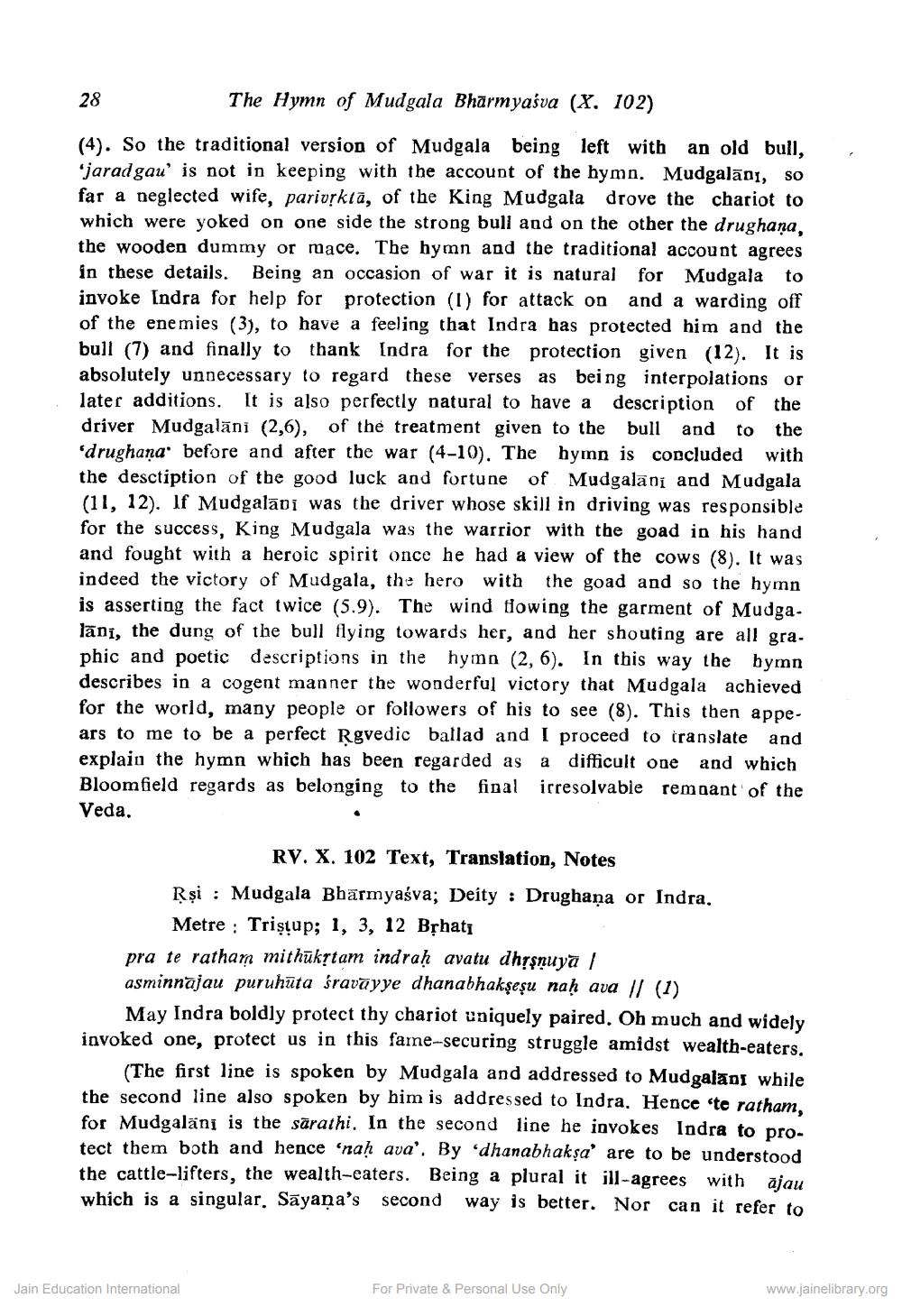________________
28
The Hymn of Mudgala Bhārmyaśva (X. 102)
(4). So the traditional version of Mudgala being left with an old bull, 'jarad gau' is not in keeping with the account of the hymn. Mudgalāni, SO far a neglected wife, parivȚktā, of the King Mudgala drove the chariot to which were yoked on one side the strong bull and on the other the drughana, the wooden dummy or mace. The hymn and the traditional account agrees in these details. Being an occasion of war it is natural for Mudgala to invoke Indra for help for protection (1) for attack on and a warding off of the enemies (3), to have a feeling that Indra has protected him and the bull (7) and finally to thank Indra for the protection given (12). It is absolutely unnecessary to regard these verses as being interpolations or later additions. It is also perfectly natural to have a description of the driver Mudgalāni (2,6), of the treatment given to the bull and to the 'drughana' before and after the war (4-10). The hymn is concluded with the desctiption of the good luck and fortune of Mudgalāni and Mudgala (11, 12). If Mudgalādi was the driver whose skill in driving was responsible for the success, King Mudgala was the warrior with the goad in his hand and fought with a heroic spirit once he had a view of the cows (8). It was indeed the victory of Mudgala, the hero with the goad and so the hymn is asserting the fact twice (5.9). The wind flowing the garment of Mudga. lāni, the dung of the bull flying towards her, and her shouting are all gra. phic and poetic descriptions in the hymn (2,6). In this way the hymn describes in a cogent manner the wonderful victory that Mudgala achieved for the world, many people or followers of his to see (8). This then appears to me to be a perfect Rgvedic ballad and I proceed to iranslate and explain the hymn which has been regarded as a difficult one and which Bloomfield regards as belonging to the final irresolvable remgant of the Veda.
RV. X. 102 Text, Translation, Notes
Rși : Mudgala Bhärmyaśva; Deity : Drughana or Indra.
Metre : Triştup; 1, 3, 12 Bșhati pra te ratham mithūkstam indraḥ avatu dhrşnuya | asminnajau puruhūta śravayye dhanabhakşeșu naḥ ava // (1)
May Indra boldly protect thy chariot uniquely paired. Oh much and widely invoked one, protect us in this fame-securing struggle amidst wealth-eaters,
(The first line is spoken by Mudgala and addressed to Mudgalāns while the second line also spoken by him is addressed to Indra. Hence te ratham. for Mudgaläni is the sārathi. In the second line he invokes Indra to protect them both and hence 'naḥ ava'. By dhanabhakşa' are to be understood the cattle-lifters, the wealth-eaters. Being a plural it ill-agrees with ajau which is a singular. Sayana's second way is better. Nor can it refer to
Jain Education International
For Private & Personal Use Only
www.jainelibrary.org




